Success Story: Glovo, a Catalan Gem
13. 11. 2019
9 min.
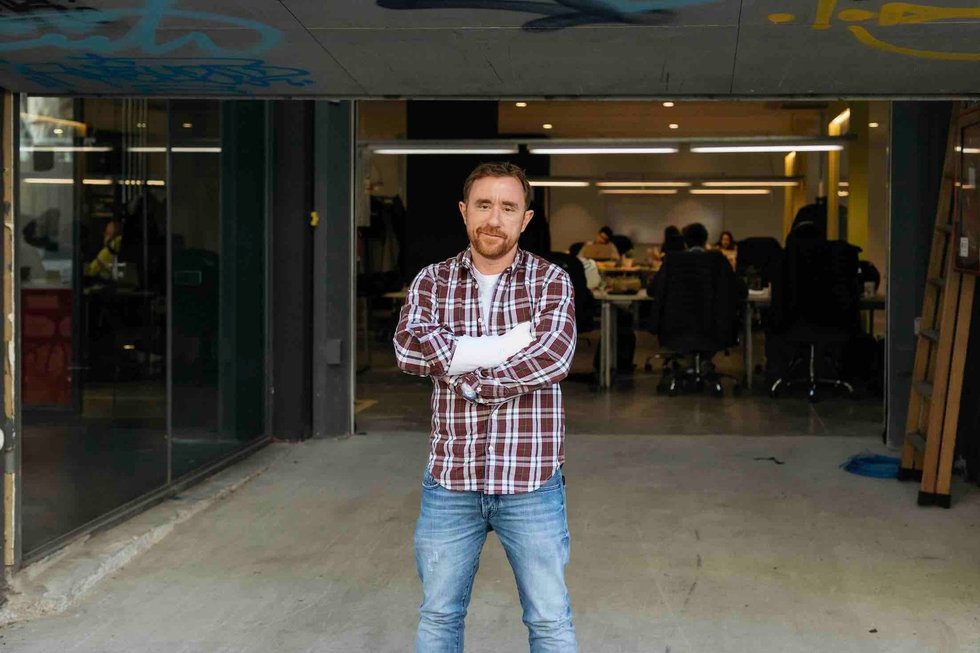
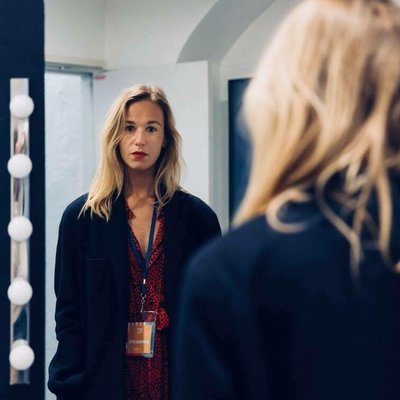
Senior Editor - SOCIETY @ Welcome to the Jungle
We chatted to Sacha Michaud, cofounder of the on-demand delivery app Glovo, about why Barcelona was the best place for him to achieve his vision and what it takes to move from stuttering start-up to success story.
Sacha, where did the idea for Glovo come from?
Oscar Pierre, my business partner, studied at the Georgia Institute of Technology in the US between 2010 and 2014. While he was there, he saw all the excitement surrounding the on-demand economy and businesses like Uber that were set to become the way of the future. He got the feeling that everything was about to change. We didn’t know each other at the time. I was in Spain and starting to go round in circles with several different digital projects that I’d spent years working on. I totally believed in these Uber-like things, that they would genuinely meet a future need. Because, up until that point, when you needed something right away, there was almost no way of getting it.
You met Oscar at the end of 2014, and you decided, at 22 and 45 respectively, to start a business together. How did this encounter come about?
At the time, I had already begun pitching my idea for a platform and I had several potential investors lined up. One day someone said to me—because even though Barcelona is a big city, everyone knows each other in the innovation ecosystem—“There’s this kid who just got back from the United States and he’s had the same idea as you. He seems really great. You should talk to him.” So I went to see Oscar and he told me how he started working, and showed me his business plan and the early stages of development. I liked him immediately. He is an extremely intelligent guy, and we had the same vision, so joining forces and working with him was a natural thing to do.
“Even though Barcelona is a big city, everyone knows each other in the innovation ecosystem”
Did you know right away that you would set up your business with him?
Within about five minutes. I’ve spent many years creating various businesses, and if there’s one thing I’m good at, it’s reading people. The person you work with doesn’t need to be perfect, but certain things are essential, such as integrity, honesty, intelligence of any kind, humility, and the capacity to learn from others.
Oscar had just finished school though—didn’t you think he was too young?
On the contrary. I even saw right away that it would be an advantage with investors! I had a lot of experience already, and I was aware that, when you are 20 and 40, your motivations might be different but some will be very similar. For one, I had my first company at 25—I know what I was like back then, I know what I’m like today. Together, we make the perfect duo. That’s why I saw his age as a very positive thing.
Glovo’s promise of delivering anything in less than an hour is a bit nuts. Why choose something so open? Why not begin with a single market?
People might think that it’s easier to concentrate on just one market, such as food delivery, and that there are still many vertical markets to develop. Actually, some companies that began shortly before us have become really successful and have earned tons more money doing just that. And they deserve it. But we’ve been dreaming about something magical from the beginning. If you have a platform that lets you get anything within an hour, why would you need five different ones? Haven’t we all, at some point—when swamped at work or cooped up at home with a sick baby, for instance—dreamed about being able to get what you want or need, precisely when you want it. The idea has always been there, in every one of us, and Oscar and I have made it possible. That’s what allowed us to get people interested so quickly. Transforming our dream into a reality allowed us to go viral.
“Transforming our dream into a reality allowed us to go viral.”

At the beginning of 2015, you were able to launch Glovo, thanks to €100,000 of seed money from business angels and family and friends. Where do you start with such a large-scale service?
The first thing to do was carry out the initial version of the app, which took us a few months. It was a very simple app, on iOS exclusively to begin with, and we got our first order at the beginning of March 2015. The second step was to go out into the field, to work our tails off. When the first orders started coming in, we didn’t have enough delivery people, so we had to leave the office and go all over Barcelona to deliver orders ourselves. And that’s extremely important because it’s how you learn, how you fully understand the challenges involved, including everything that has an impact on the success of your business. And it’s particularly complicated when you’re a marketplace, because you have three parts to manage—consumers, delivery people, and partner brands and stores. Each one has its own specific challenges.
What were the major obstacles you had to avoid?
Being a start-up and experiencing all the associated disruptions, we had to stop ourselves from being afraid to make mistakes and thinking that everything had to be perfect from the start. Nothing was perfect in those days. And for that matter, nothing is perfect today. But if we’d waited for things to become flawless before putting them into practice, we most likely wouldn’t have been here today. To avoid being entrepreneurs who came on the market too late, we just went at it at top speed. By the end of April 2015, we already had tons of orders, press articles were starting to come out thick and fast, and we saw that it was really going to happen. If we hadn’t moved so fast, Oscar and I, so in sync and focused on getting things done to ensure the company’s growth, then it wouldn’t have worked.
“We had to stop ourselves from being afraid to make mistakes and thinking that everything had to be perfect from the start.”
In September 2015, you raised an initial €1.5 million in funding, before going on to raise €30 million in September 2017. Was it easy to find the money?
To be perfectly honest, I think the early days would have been simpler if our company had been in the UK, France or, in particular, the US, because funding is easier to find there. But the same rule applies everywhere—the hardest part is finding your first investors. Once that’s done, it almost becomes easy to convince others to do it. And we’ll have to raise even more if we want to stay true to our vision.
Did you get any financial assistance or support from the Spanish state or Catalonia?
Not really. If you have an investment to make, you can get loans from the Spanish state, which is what we managed to do, but it wasn’t a huge amount. There are also local subsidies, but they won’t take you very far either. That said, Barcelona Activa, the organization set up by Barcelona City Council to offer help to new businesses, has a program that provides considerable support for young entrepreneurs, in areas such as understanding taxation, identifying sources of funding, training courses, and so on. Four locations have been set up for this program, and you can find offices there, in an ideal environment. We were even able to open offices in 22@ Barcelona in El Poblenou, an area of the city that has been transformed into an innovation district and is reserved for tech companies.

Barcelona doesn’t seem like a typical choice for launching a start-up. Why did you choose this city?
First of all, because Oscar is originally from Barcelona, and also because I’d been living here for 20 years and we had no desire to leave. Also, I think it’s a great place to build a tech company. For starters, it’s an incredible city to live in. What’s more, talented people today want a good work-life balance. This wasn’t so much the case 10 or 20 years ago, but you can really feel it now. You can attract amazing people to Barcelona, people who are willing to earn less than half of what they’d make in London or Paris, to live another way, attracted by benefits that go beyond a huge salary. For example, life is cheaper here, you can have children without worrying about their well-being, and it’s easy to take family trips to the beach. Secondly, the city is especially suitable for a platform and delivery system like ours. Mobility has improved, people can easily ride motorcycles or bikes, and the climate is perfect for two wheels.
“You can attract amazing people to Barcelona, people who are willing to earn less than half of what they’d make in London or Paris, to live another way, attracted by benefits that go beyond a huge salary.”
Still, not many Barcelona start-ups have become famous.
That’s true. And it’s probably why we found it pretty hard to find funding. Investors don’t always consider Barcelona-based start-ups. They’ve had their eyes on what’s been happening in Silicon Valley these past 25 years, or in major capitals like London, Paris, or Berlin. But I think that’s changing.
What has been the hardest thing for you and Oscar in your journey?
There have been a lot of difficult times. But I think the hardest thing when you go fast is the fact that you will inevitably make lots of mistakes, so you need to be incredibly reactive. There were a number of times when we quickly had to change our strategy in terms of retail or our version of the app. It’s all very demanding. But looking back, I don’t think they were mistakes. We were just doing what we could with the resources we had at that time. In fact, there weren’t any hard blows that kept us awake at night, because we knew we were going in the right direction. Just waking up in the morning and correcting mistakes from the previous day was enough.
At the beginning of 2016, you started expanding internationally, launching first in Milan, Italy. Why did you choose that city?
By accident! We met the founder of a local delivery company there, we got on well, and so we decided to open in Milan. At the same time, it was in line with our strategy to develop in countries in southern Europe, where the weather is well suited to deliveries. When we opened in our second city outside Spain—Paris, in June 2016—the local strategy was very different. Paris is a very big city, very competitive, and you need a lot of money to win that competition. However, since we didn’t have the resources required to win, we decided to take a chance with an organic approach, building the foundations of the structure slowly but surely. And we are very happy with the growth we have there—it’s the market that experienced the strongest growth after launching, with an increase of 25 to 30% per month.
What’s your next step?
To continue expanding! We’ve now launched in Latin America, including Santiago in Chile, Lima in Peru, and Buenos Aires in Argentina—being Spanish helps us in terms of culture and language there. We’re always checking out opportunities elsewhere, all over the world. We’ve been looking at Egypt—anywhere where there might be an opportunity for us.

What advice would you give to someone who wants to set up their own business?
There are some key things you’ll need to have if you want to be an entrepreneur. For me, the first thing would be resilience, because you will face challenges on a daily basis. Everyone who has ever set up a company will tell you, “If I’d known, I might never have started!” Take Uber, for example, and all the problems they’ve had and continue to have with taxi drivers, various governments against them, and so on. You must be very resilient. And you must surround yourself with a good team and stay humble so that you can keep learning from other people.
“Everyone who has ever set up a company will tell you, “If I’d known, I might never have started!” You must be very resilient. And you must surround yourself with a good team and stay humble.”
And what about Barcelona in particular?
It’s important to keep in mind that Barcelona and Catalonia are still very bureaucratic and pretty inflexible when it comes to what they offer companies who set up here. You have to be prepared, because there will certainly be more paperwork than financial support. As I mentioned earlier, investments are hard to get, so you must be patient. But actually, if you launch a project in Barcelona with a great idea and an excellent team, you’re bound to be able to enjoy a great deal of success.
“If you launch a project in Barcelona with a great idea and an excellent team, you’re bound to be able to enjoy a great deal of success.”
Before launching in Barcelona, where should you go and who should you meet?
The entrepreneurial ecosystem is varied. For example, you can go to Barcelona Tech City, which is full of entrepreneurs, or you can meet with different start-up accelerators, such as Conector. And if you’re an expat, don’t forget that communities are always ready to help each other out. Barcelona is so great because, even if the entrepreneurial fabric is vast, everybody knows each other and it’s easy to meet people. Not only are there a lot of meetups, but it also hosts global events representing every sector. The Mobile World Congress takes place in the city every year, and there are always awards ceremonies and high-level keynote speakers. There are at least two or three events every month.
So will Glovo’s HQ stay in Barcelona?
Yes, definitely!
Photos: Welcome to the Jungle
Translated by Andrea Schwam

Další inspirace: Work in Barcelona
Moving to Barcelona for work? Navigate the job jungle in this international hub with our insider tips, advice from locals and insights from industry experts.
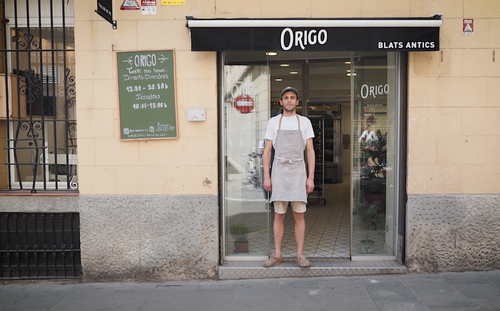
Work in Barcelona: François
Originally from Belgium, he left his job at Google in San Francisco to move to Barcelona with his wife, where he decided to open his own bakery.
11. 12. 2019
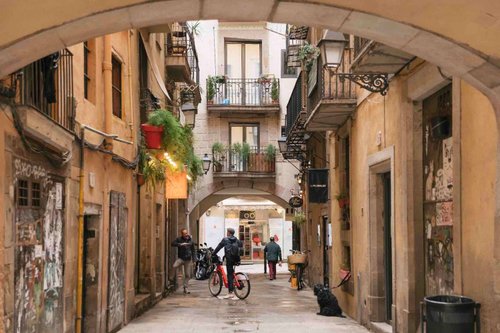
Work in Barcelona
Considering relocating to Barcelona? Let’s have a look behind the scenes to understand what it takes to be a happy expat in Barcelona.
11. 12. 2019
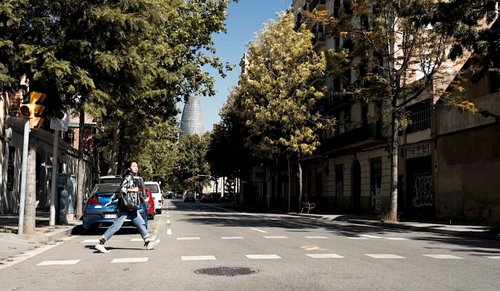
Work in Barcelona: Amy
Born and raised in Canada, Amy moved to Barcelona to change career by retraining as a software developer. Here's her expat experience of the city.
11. 12. 2019
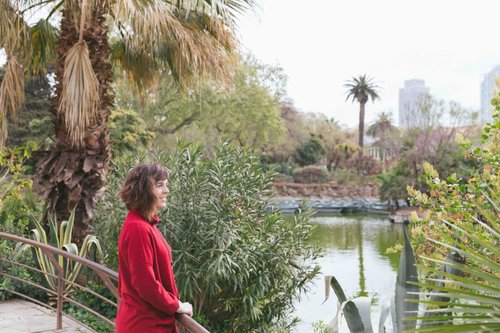
My Barcelona: ‘The city is so much richer than it seems’
For Anaïs, Barcelona is such an enticing city that she has made it her home not once, but twice.
13. 11. 2019
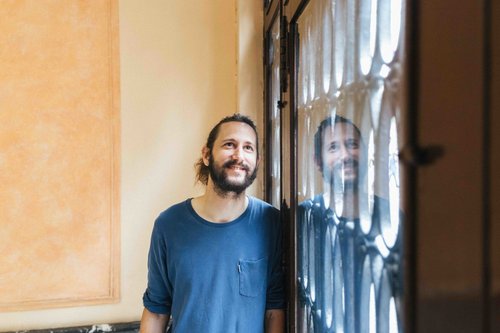
My Barcelona: ‘It’s the Silicon Valley of Europe’
Frenchman Erwan Riou originally qualified as an architect, but after a stint in Brazil, the 33-year-old started retraining as a programmer...
13. 11. 2019
Zpravodaj, který stojí za to
Chcete držet krok s nejnovějšími články? Dvakrát týdně můžete do své poštovní schránky dostávat zajímavé příběhy, nabídky na práce a další tipy.

Hledáte svou další pracovní příležitost?
Více než 200 000 kandidátů našlo práci s Welcome to the Jungle
Prozkoumat pracovní místa